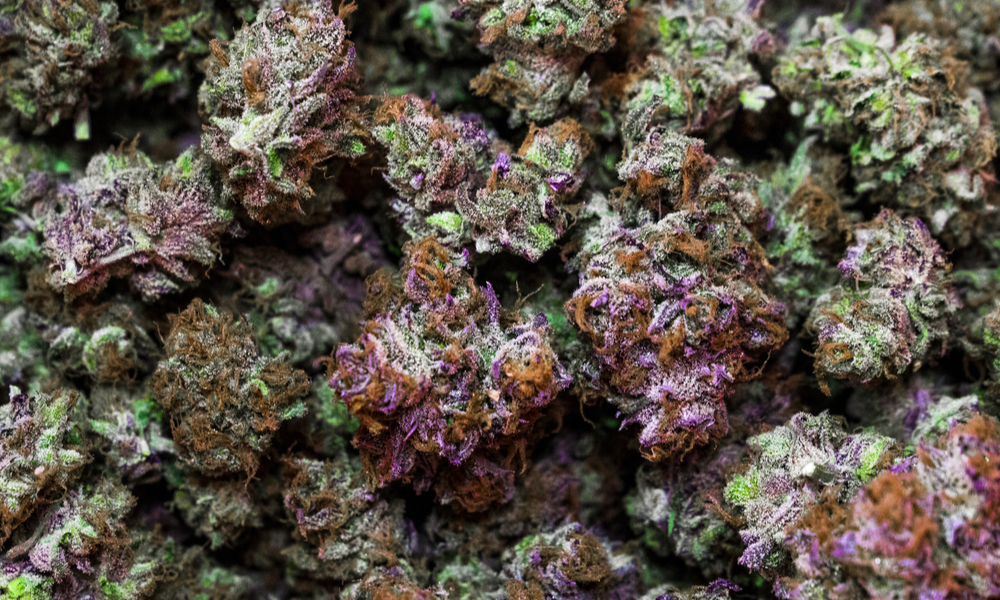Tetrahydrocannabivarin (THCV) is a cannabinoid compound discovered in cannabis and hemp plants. It's chemically comparable to tetrahydrocannabinol (THC) however with some essential distinctions. Here's whatever you need to understand about THCV including the dangers, advantages, distinctions, and similarities with other kinds of THC and more. What Is THCV? THCV is a less common cannabinoid discovered in some stress of marijuana, especially African sativa.
 The Therapeutic Value of THCV • truPhys
The Therapeutic Value of THCV • truPhys
 THCV vs THC: What Are the Differences? Articles Analytical Cannabis
THCV vs THC: What Are the Differences? Articles Analytical Cannabis
 THCV: What are the Benefits; Does it Get You High? - Vaping360
THCV: What are the Benefits; Does it Get You High? - Vaping360
THCV has a 3-carbon side chain instead of THC's 5-carbon side chain. This difference is subtle, but it has an obvious influence on the effect profile. THCV is rather psychedelic however just about and about. What Does THCV Feel Like? THCV has a strong energy-boosting component to it, that makes it specifically popular among students and professional athletes.
In the United States, THCV guideline is nuanced. THCV is not a Schedule I Drug, but marijuana extracts are making it somewhat unclear what the federal position is on THCV. The 2018 Farm Bill states that hemp plants and all derivatives of the plants are legal on a federal level, numerous business comply with this law and still offer THCV to consumers by only extracting the substance from hemp plants.
If THCV is thought about a THC analog, it could be controlled in the future by the exact same guidelines as THC under the Federal Analog Act. This act specifies that any compound that shares a similar molecular profile as a recognized forbidden substance it's included in the exact same drug Schedule category.
What Are the Effects of THCV? Advocates of THCV report that it produces an extreme burst of energy and makes them feel blissful without the mental cloudiness caused by THC. The effects are extremely mild compared to THC. The results are almost specifically cognitive yet in some way have very little effect on headspace.
2. THCV & Appetite Some THCV users declare that it curbs their appetite. This is a common effect of other focus-enhancing substances as well. It's as though THCV removes the diversion of other physical processes (like cravings) in order to preserve resources and attention to cognitive jobs instead. How Does THCV Work? Cannabinoids produce biological effects in the body by interacting with endocannabinoid receptors.
CB1 receptors are situated in the nervous system and interact with neurotransmitters in the brain to produce mind-altering effects. Interaction with CB1 sites is what offers some cannabinoids like THC their psychoactivity. THCV is a bit tricky to comprehend because it's primarily a CB1 antagonist, indicating it has the opposite result as THC.
While scientists are still seeking to understand this procedure, it appears THCV is able to obstruct the impacts of CB1 in low dosages and promote them in high dosages. CB2 receptors are found mainly in the immune system. THCV is a partial agonist of CB2, however the effects of this partial activity aren't well-known, and it apparently has no noticeable impact on THCV users' experience.
As pointed out in the previous area, THCV is a CB1 antagonist in low doses which is the precise opposite result of delta 8 and delta 9 THC. This could mean that THCV neutralizes a few of the psychedelic results of THC. This result might discuss why individuals who use THCV feel so clear-headed especially compared to the notorious "fogginess" induced by delta 9 THC.